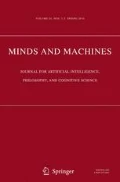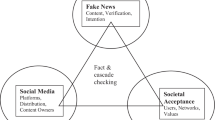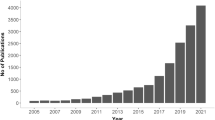Abstract
The distinction between misinformation and disinformation becomes especially important in political, editorial, and advertising contexts, where sources may make deliberate efforts to mislead, deceive, or confuse an audience in order to promote their personal, religious, or ideological objectives. The difference consists in having an agenda. It thus bears comparison with lying, because “lies” are assertions that are false, that are known to be false, and that are asserted with the intention to mislead, deceive, or confuse. One context in which disinformation abounds is the study of the death of JFK, which I know from more than a decade of personal research experience. Here I reflect on that experience and advance a preliminary “theory of disinformation” that is intended to stimulate thinking on this increasingly important subject. Five kinds of disinformation are distinguished and exemplified by real life cases I have encountered. It follows that the story you are about to read is true.
Similar content being viewed by others
References
Carl, L. (ed.) (1990), The International Directory of Intelligence, McLean, VA: International Defense Consultant Services.
Costello, G. (1994), 'Kennedy Assassination: Case Still Open', Federal Bar News &; Journal 41 (March/April).
Costello, G. (2001), Review of Murder in Dealey Plaza, The Federal Lawyer (May), pp. 52–56.
Fetzer, J. H. (1996), Philosophy and Cognitive Science, 2nd edition, St. Paul, MN: Paragon House Publishers.
Fetzer, J. H. (1998), Assassination Science, Chicago, IL: Catfeet Press/Open Court.
Fetzer, J. H. (2000), Murder in Dealey Plaza, Chicago, IL: Catfeet Press/Open Court.
Fetzer, J. H. (2003), 'Information: Does It Have To Be True?', Minds and Machines 14, pp. 223–229.
Franzen, E.-U. (1998), 'Conspiracy Collection Falls Short', Milwaukee Journal Sentinel (18 January 1998), p. 10E.
Hersh, S. (1997), The Dark Side of Camelot, New York, NY: Little, Brown and Company.
Milstead, D. (2001), 'Tax Checks in the Mail — With a Catch!', The Rocky Mountain News (21 July).
Posner, G. (1993), Case Closed, New York, NY: Random House.
White, J. (2001a), A Post from Jack White on JFKresearch.com (14 January at 16:12:48).
White, M. (2001b), A Post from Martin White on JFkresearch.com (3 February at 12:48).
Wrone, D. (1995), Review of Gerald Posner, Case Closed, Journal of Southern History 6 (February), pp. 186–188.
Wrone, D. (1998), 'Shame on You, Sy, for that Awful Book on JFK', Capital Times of Madison, WI (16 January).
Author information
Authors and Affiliations
Rights and permissions
About this article
Cite this article
Fetzer, J.H. Disinformation: The Use of False Information. Minds and Machines 14, 231–240 (2004). https://doi.org/10.1023/B:MIND.0000021683.28604.5b
Issue Date:
DOI: https://doi.org/10.1023/B:MIND.0000021683.28604.5b




